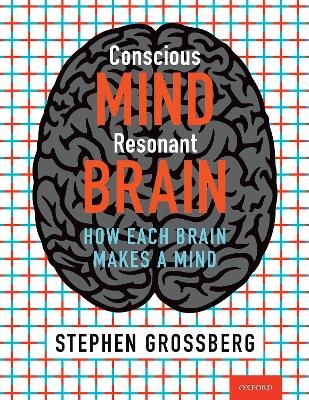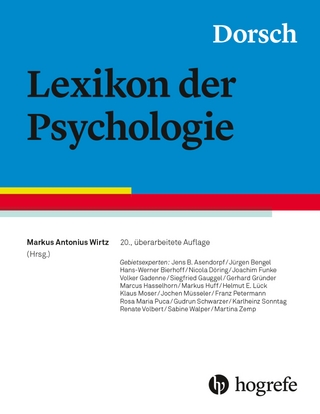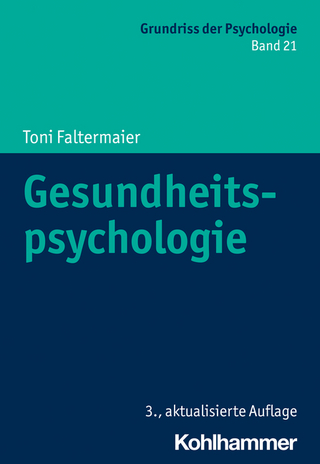
Conscious Mind, Resonant Brain
Oxford University Press Inc (Verlag)
978-0-19-007055-7 (ISBN)
- Titel nicht im Sortiment
- Artikel merken
How does your mind work? How does your brain give rise to your mind? These are questions that all of us have wondered about at some point in our lives, if only because everything that we know is experienced in our minds. They are also very hard questions to answer. After all, how can a mind understand itself? How can you understand something as complex as the tool that is being used to understand it?
This book provides an introductory and self-contained description of some of the exciting answers to these questions that modern theories of mind and brain have recently proposed. Stephen Grossberg is broadly acknowledged to be the most important pioneer and current research leader who has, for the past 50 years, modelled how brains give rise to minds, notably how neural circuits in multiple brain regions interact together to generate psychological functions. This research has led to a unified
understanding of how, where, and why our brains can consciously see, hear, feel, and know about the world, and effectively plan and act within it.
The work embodies revolutionary Principia of Mind that clarify how autonomous adaptive intelligence is achieved. It provides mechanistic explanations of multiple mental disorders, including symptoms of Alzheimer's disease, autism, amnesia, and sleep disorders; biological bases of morality and religion, including why our brains are biased towards the good so that values are not purely relative; perplexing aspects of the human condition, including why many decisions are irrational and
self-defeating despite evolution's selection of adaptive behaviors; and solutions to large-scale problems in machine learning, technology, and Artificial Intelligence that provide a blueprint for autonomously intelligent algorithms and robots.
Because brains embody a universal developmental code, unifying insights also emerge about shared laws that are found in all living cellular tissues, from the most primitive to the most advanced, notably how the laws governing networks of interacting cells support developmental and learning processes in all species.
The fundamental brain design principles of complementarity, uncertainty, and resonance that Grossberg has discovered also reflect laws of the physical world with which our brains ceaselessly interact, and which enable our brains to incrementally learn to understand those laws, thereby enabling humans to understand the world scientifically.
Accessibly written, and lavishly illustrated, Conscious Mind/Resonant Brain is the magnum opus of one of the most influential scientists of the past 50 years, and will appeal to a broad readership across the sciences and humanities.
For the past 50 years, since his foundational articles appeared in the Proceedings of the National Academy of Sciences in 1967-1980, Stephen Grossberg has been internationally recognized as the most important pioneer and current research leader who introduces and develops neural network models and mathematical methods for both biological and artificial intelligence. This work has always had its foundation in discoveries about biological and machine learning. More generally, Grossberg is the world's leading scientist/engineer who discovers and models neural design principles and mechanisms that enable the behavior of individuals, or machines, to adapt autonomously in real time to unexpected environmental challenges. These discoveries have laid the scientific foundations of the revolutionary computational paradigm of autonomous adaptive intelligence, and his neural network models have been applied to many large-scale problems in engineering and technology, notably the design of increasingly autonomous adaptive algorithms and mobile agents. To acknowledge these contributions, Grossberg received the 2015 Norman Anderson Lifetime Achievement Award of the Society of Experimental Psychologists, the 2017 Frank Rosenblatt Award of the IEEE Computational Intelligence Society, and the 2019 Donald O. Hebb Award of the International Neural Network Society.
PREFACE
Biological intelligence in sickness, health, and technology
Chapter 1. OVERVIEW
From Complementary Computing and Adaptive Resonance to conscious awareness
Chapter 2. HOW A BRAIN MAKES A MIND
Physics and psychology split as brain theories were born
Chapter 3. HOW A BRAIN SEES: CONSTRUCTING REALITY
Visual reality as illusions that explain how we see art
Chapter 4. HOW A BRAIN SEES: NEURAL MECHANISMS
From boundary completion and surface filling-in to figure-ground perception
Chapter 5. LEARNING TO ATTEND, RECOGNIZE, AND PREDICT THE WORLD
From vigilant conscious awareness to autism, amnesia, and Alzheimer's disease
Chapter 6. CONSCIOUS SEEING AND INVARIANT RECOGNITION
Complementary cortical streams coordinate attention for seeing and recognition
Chapter 7. HOW WE SEE A CHANGING WORLD
How vision regulates object and scene persistence
Chapter 8. HOW WE SEE AND RECOGNIZE OBJECT MOTION
Visual form and motion perception obey complementary laws
Chapter 9. TARGET TRACKING, NAVIGATION, AND DECISION-MAKING
Visual tracking and navigation obey complementary laws
Chapter 10. LAMINAR COMPUTING BY CEREBRAL CORTEX
Towards a unified theory of biological and artificial intelligence
Chapter 11. HOW WE SEE THE WORLD IN DEPTH
From 3D vision to how 2D pictures induce 3D percepts
Chapter 12. FROM SEEING AND REACHING TO HEARING AND SPEAKING
Circular reaction, streaming, working memory, chunking, and number
Chapter 13. FROM KNOWING TO FEELING
How emotion regulates motivation, attention, decision, and action
Chapter 14. HOW PREFRONTAL CORTEX WORKS
Cognitive working memory, planning, and emotion conjointly achieve valued goals
Chapter 15. ADAPTIVELY TIMED LEARNING
How timed motivation regulates conscious learning and memory consolidation
Chapter 16. LEARNING MAPS TO NAVIGATE SPACE
From grid, place, and time cells to autonomous mobile agents
Chapter 17. A UNIVERSAL DEVELOPMENTAL CODE
Mental measurements embody universal laws of cell biology and physics
| Erscheinungsdatum | 09.06.2021 |
|---|---|
| Verlagsort | New York |
| Sprache | englisch |
| Maße | 224 x 287 mm |
| Gewicht | 1868 g |
| Themenwelt | Geisteswissenschaften ► Psychologie ► Allgemeines / Lexika |
| Geisteswissenschaften ► Psychologie ► Allgemeine Psychologie | |
| Geisteswissenschaften ► Psychologie ► Verhaltenstherapie | |
| Mathematik / Informatik ► Informatik | |
| Naturwissenschaften ► Biologie ► Humanbiologie | |
| Naturwissenschaften ► Biologie ► Zoologie | |
| ISBN-10 | 0-19-007055-2 / 0190070552 |
| ISBN-13 | 978-0-19-007055-7 / 9780190070557 |
| Zustand | Neuware |
| Informationen gemäß Produktsicherheitsverordnung (GPSR) | |
| Haben Sie eine Frage zum Produkt? |
aus dem Bereich


